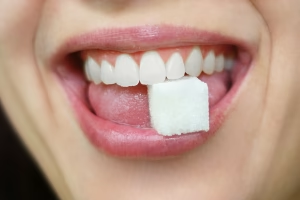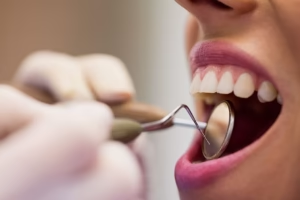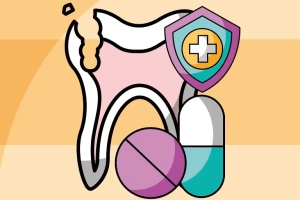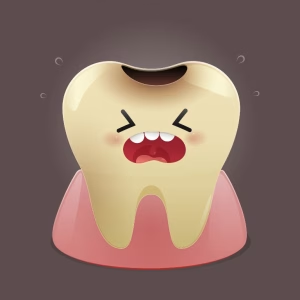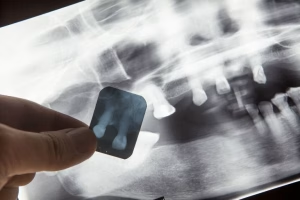What Is Mastication and Why It’s Important for Your Oral Health
26 February 2020 | Updated: 7 October 2025
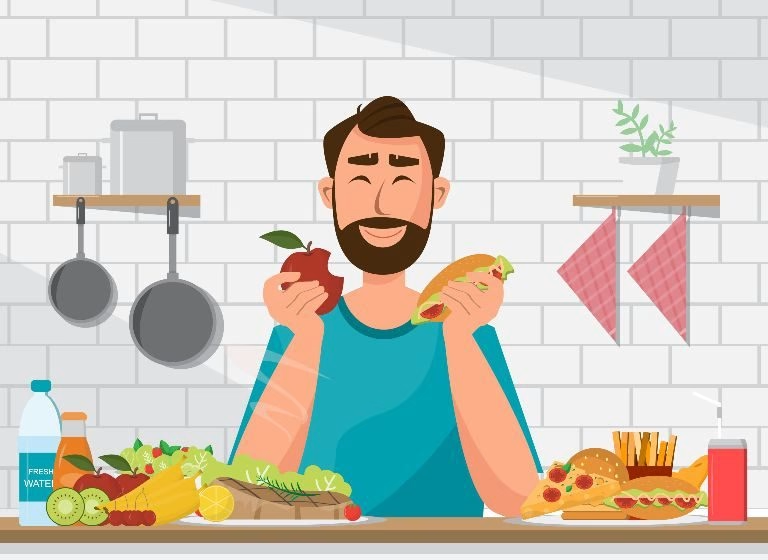
Being in pain due to bad teeth or jaw issues while you go about your daily activities can cause a lot of stress. That stress can aggravate conditions like TMJ disorder, even more, causing even more damage to your oral health and overall health. You can’t chew your food properly if you have bad teeth, causing bloating and gas and even more stress.
Changing your eating habits, and avoiding certain foods and practices, like forceful chewing, can really help alleviate some of the pain, but good oral health practices and regular dental checkups are the best ways to make sure you’re staying healthy.
Proper food processing starts with proper mastication. So let’s look at it.
What is mastication?
According to Wikipedia:
“Mastication is the process by which food is crushed and ground by teeth. It is the first step of digestion, and it increases the surface area of foods to allow a more efficient breakdown by enzymes. During the mastication process, the food is positioned by the cheek and tongue between the teeth for grinding. The muscles of mastication move the jaws to bring the teeth into intermittent contact, repeatedly occluding and opening. As chewing continues, the food is made softer and warmer, and the enzymes in saliva begin to break down carbohydrates in the food.”
To put it simply, it’s the chewing of food. It’s a very important step in food digestion. Your stomach does not have teeth. If you don’t chew your food properly, your digestive system won’t be able to break it down. Badly chewed food takes longer to digest and can cause bloating, gas and even nausea. It can even remain completely undigested, leaving you without those nutrients.
Chewing slowly increases the alkalinity of the food, which is very important. Many people suffer from acid reflux, heartburn and indigestion. This shift in alkalinity can help with that.
While different studies show how to get a stronger jawline through forceful chewing if you already have bad teeth and jaw issues it’s best to avoid forceful chewing. It can cause ear and jaw pain while chewing, as well as cracked teeth.

What foods are bad for your teeth?
- Hard candy. No surprise there. Full of sugar. Hard and sticky, which can cause chipped or broken teeth. Best to avoid at all times.
- Soda. Also full of sugar, bacteria use sugar to produce acids that damage your enamel. Caffeinated beverages, also dry out your mouth, which can lead to gum disease, so try and drink water alongside coffee and soda.
- Ice. Why? It’s water, after all, and doesn’t contain any sugar? Chewing on hard things can lead to dental issues and damage teeth.
- Citrus fruits and juices. While very healthy, regular exposures to citric acid can erode enamel, making teeth more vulnerable to decay.
- Potato Chips. Starchy snacks break have a tendency to stick to your teeth, creating an environment perfect for bacterial plaque to thrive.
- Dried fruits are sticky and full of sugar. While healthier, they have a similar effect on teeth as hard candy. Because of their stickiness, they tend to stay on teeth for long periods of time, allowing bacteria to wreak havoc. Make sure to rinse your mouth out with water, after eating them.
That was a shortlist of what foods are bad for your teeth. The gist of it is: avoid hard, sticky sugary foods. Sugar, through bacteria, damages your enamel, while hard and sticky foods can cause chipped or cracked teeth, and worsen any jaw issues.
So what can you eat when you already have a dental problem, and not make it worse?
Foods you can eat without chewing
Just because you have problems with chewing doesn’t mean you should eat only mashed potatoes and scrambled eggs. Chewing issues shouldn’t stop you from trying to eat as healthy as possible.
Vegetables and Fruit:
- Steam your veggies (steaming helps retain the vegetable’s nutrients)
- Soft, well ripe fruit or vegetables, such as bananas, peaches, and avocados
- Mash or puree your veggies(peas, beans, potatoes)
- Smoothies, blend your favourite veggies and fruit with yoghurt, plant-based milk, chia seeds, whatever you feel like having
- In soup, like smoothies you can go “wild” with ingredients
Grains:
- Oatmeal, an old-fashioned breakfast, is one of the healthiest breakfast foods you can find
- Soft cooked noodles, pasta, rice, or quinoa
- Cold cereal that becomes soft with milk
- Soft bread, pancakes, muffins
Meat, milk etc. (and their alternatives):
- Milk, yoghurt, soft cheese and their plant-based counterparts (soy, rice, oat-based products)
- Stewed, slow-cooked meat like pulled pork or beef stew
- Flaky fish like cod or salmon
- Scrambled eggs
- Soft tofu is a great alternative to meat and eggs
- Peanut butter and jelly or honey
OK, now you know what foods you can eat without chewing so that you don’t make your dental situation worse, but that is not exactly a solution. Let’s look at what you can do to fix that situation.

Treatments for bad teeth
We cannot emphasise enough the importance of a regular dental check-up. They can identify cavities and other dental conditions before they cause troubling symptoms and lead to more serious problems.
If you suspect you have some teeth problems, see a dentist as soon as possible. The sooner you seek care, the less invasive treatments need to be.
Treatment options include:
- Fluoride treatments: If your cavity is in the very early stages, it can restore your enamel and sometimes even reverse the damage.
- Fillings: When decay has progressed beyond the earliest stage, fillings are a go-to treatment. They are made of various materials, resins, porcelain or dental amalgam.
- Crowns: For very bad decay you may need a crown. It’s a custom made “cap” that replaces your tooth’s crown, thus restoring the teeth’s natural size and function
- Root Canal: A tooth that is decayed beyond the help of fillings and crown treatments, have their pulp (the living tissue inside the tooth), nerves, any decaying matter removed and the resulting gap is filled with dental materials which restore the function of the tooth.
- Tooth extractions: Some teeth become so badly decayed that they can’t be saved and must be completely removed. Having a tooth extracted will leave a gap. Bridges are then used to replace one or more missing teeth filling those gaps.
There are some home remedies that may keep cavities from getting bigger and prevent new ones from forming, like sugar-free gum, liquorice root, oil pulling etc. These methods are not a substitute for good oral hygiene and regular checkups.
Conclusion
To keep your teeth strong and your bite healthy, it’s essential to avoid sugary, sticky, and hard foods that can damage enamel and strain your jaw. Combine that with consistent oral hygiene and regular visits to your dentist to prevent long-term complications. A trusted dental clinic like MGA Dental can help you maintain proper chewing function and overall oral health for years to come.



